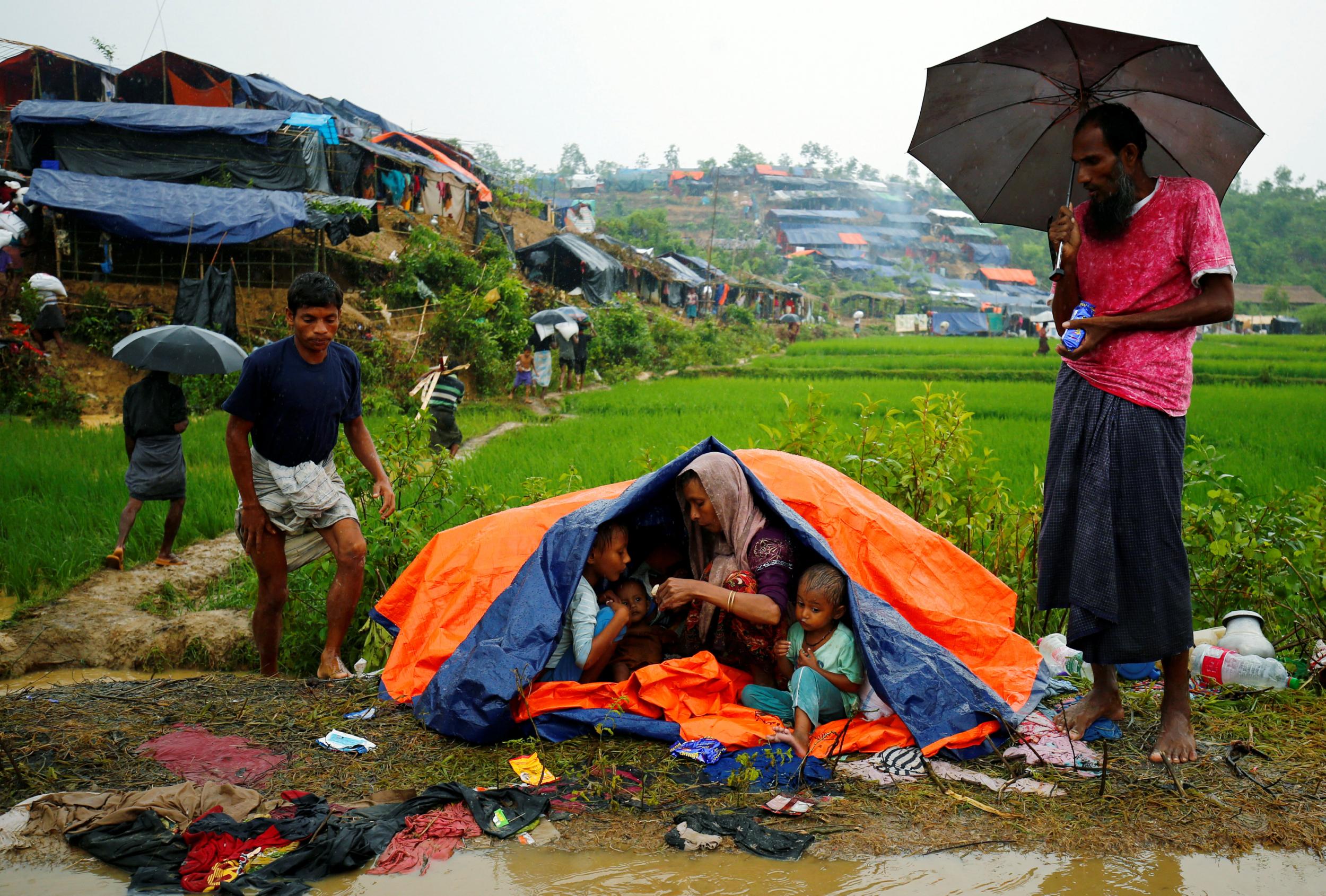Rohingya refugees 'could starve to death' in Bangladesh after fleeing violent persecution in Burma
'The demand for food, shelter, water and basic hygiene support is not being met due to the sheer number of people in need'

Rohingya refugees fleeing violent persecution in Burma could starve to death amid a growing humanitarian crisis, an aid agency has warned.
Nearly 410,000 members of the country’s Rohingya Muslim minority face shortages of food, water, and shelter after escaping from western Rakhine state into Bangladesh.
They have fled a Burmese military offensive that the United Nations has branded “a textbook example of ethnic cleansing”.
"Many people are arriving hungry, exhausted and with no food or water," said Mark Pierce, Bangladesh country director the Save the Children charity.
He added: "I’m particularly worried that the demand for food, shelter, water and basic hygiene support is not being met due to the sheer number of people in need. If families can’t meet their basic needs, the suffering will get even worse and lives could be lost."
For decades Bangladesh has received influxes of Rohingya fleeing from Buddhist-majority Burma, where they are reviled by many as illegal immigrants and suffer systematic discrimination.
Bangladesh was already home to 400,000 Rohingya before the latest crisis erupted last month.
The country's government has committed to building thousands of shelters to house displaced people, with the United Nations Refugee Agency warning existing camps were "bursting at the seams".
Mr Pierce said the humanitarian response needed be urgently scaled up.
"That can only be done if the international community steps up funding,” he added.

Save the Children said more than a million Rohingya refugees could be in Bangladesh by the end of the year. It estimated that figure would include 600,000 children, many "alone and in desperate need of help" and at risk of exploitation and trafficking.
Some child refugees were reported to have witnessed the murder of their parents, the charity added.
Human rights monitors and fleeing Rohingya have said Burmese security forces and Rakhine Buddhist vigilantes launched campaign of violence and arson aimed at driving out the Muslim population.
The violence was said to be in response to attacks by Rohingya insurgents on police posts and an army camp, which killed a dozen people on 25 August.
Burma has rejected allegations of ethnic cleansing, claiming its security forces were carrying out clearance operations to defend against the insurgents of the Arakan Rohingya Salvation Army, which claimed responsibility for the August attacks and similar, smaller raids in October last year.
The government has declared the group a terrorist organisation and accused it of lighting the fires itself and attacking civilians.
More than 430 people have been killed, most of them insurgents, and about 30,000 non-Muslim villagers have been displaced, according to the government.
Human Rights Watch said satellite imagery showed 62 Rohingya villages had been torched in an orchestrated campaign.
Amnesty International said there was evidence security forces were using scorched-earth tactics to drive out the minority.
Entire villages have been burned down by vigilante mobs and the military and people trying to flee have been shot, the organisation said.
Video footage that emerged from the country this week appeared to show the bodies of young Rohingya children washed up on the shores of the Naf river after reportedly being shot dead by police.

Some 100 Rohingya are also said to have drowned trying to cross the river, which formers a natural border between Burma and Bangladesh.
Burmese government leader and Nobel laureate Aung San Suu Kyi has faced a barrage of criticism from abroad for not doing more to stop the violence or condemning it more forcefully.
The military is in full control of Burma's security policy and the offensive has wide support in a country where there is little public sympathy for the Rohingya.
Ms Suu Kyi is due to make her first address to the nation on the crisis this week.
Her foreign supporters and Western governments that backed her campaign against military rule will be hoping to see her make a new commitment to protect the rights of the Muslim minority.
At home, her supporters could be disappointed if she is perceived to be caving in to foreign pressure and taking the side of a Muslim minority blamed for initiating the violence.
Join our commenting forum
Join thought-provoking conversations, follow other Independent readers and see their replies
Comments
Bookmark popover
Removed from bookmarks